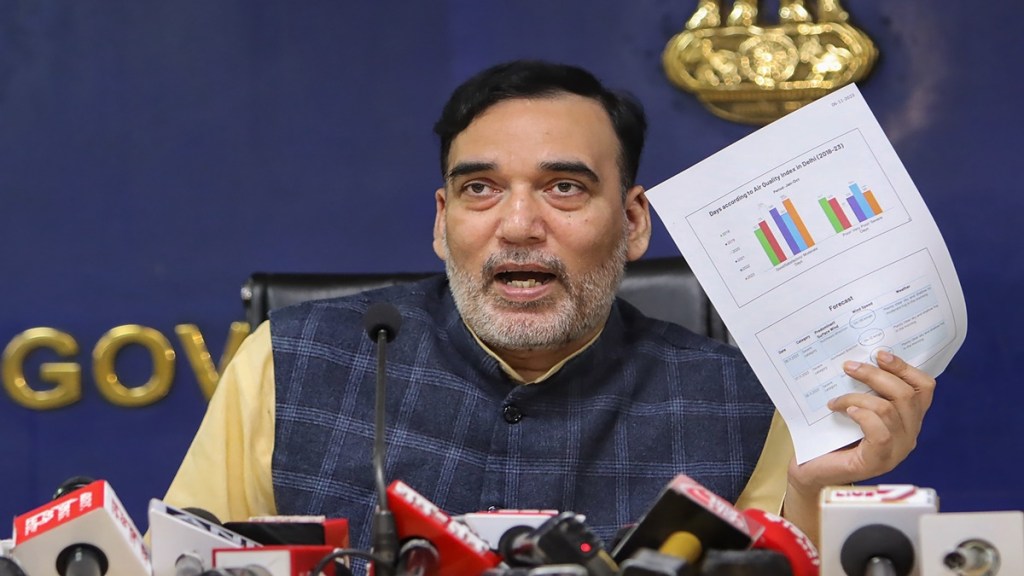After the Supreme Court rapped the state governments over rising pollution levels, Delhi Environment Minister, Gopal Rai, said on Tuesday that the government will consider the directives of the top court while finalizing the odd-even car rationing scheme.
This response came after the Supreme Court’s hearing on air pollution issues in Delhi-NCR on Tuesday, which included concerns about crop residue burning, vehicular pollution, and open waste burning, as reported by PTI
Given the worsening air quality in the national capital, Rai had earlier stated that the odd-even scheme will be in effect from November 13 to 20.
However, after the SC hearing, Rai said, “We will incorporate the orders and suggestions of the Supreme Court and accordingly plan the odd-even scheme.”
The minister asserted that the meeting was held with senior officers of the transport and environment departments as well as the traffic police to discuss the preparations for the scheme.
Regarding stubble burning, Rai mentioned that there are very few incidents in Delhi, and the government has arranged free sprinkling of bio decomposers to control it. The overall air quality in Delhi, which had been severe for five consecutive days, slightly improved today with an AQI of 394 (Very poor).
SC says odd-even scheme ‘mere optics’
During the hearing on Tuesday, the Supreme Court criticized the Delhi government’s odd-even scheme, labelling it as “mere optics” without any substantial impact. The court questioned whether the government had evaluated the scheme’s effectiveness in previous years, emphasizing that such measures are often more about appearances than effect.
“Have you evaluated how it worked in previous years? Such schemes are mere optics,” the court said, as reported by Bar and Bench.
Justices Sanjay Kishan Kaul and Sudhanshu Dhulia, presiding over the case, noted that the air pollution situation in the National Capital Region would have been even worse if not for the metro railway system. Justice Kaul remarked on the importance of the metro system, while also acknowledging that point-to-point connectivity remains a challenge.
“An issue is extreme weather conditions. God knows what would have happened if Metro was not there. Though point-to-point connectivity is still an issue,” Justice Kaul said.
The Court also urged the Delhi government to regulate the entry of “orange-tagged” vehicles, which typically refer to polluting diesel cars and taxis from other states, into the national capital.
Furthermore, the bench addressed the issue of stubble burning by farmers in the northern states of Punjab, Haryana, and Western Uttar Pradesh, emphasizing the need to stop this practice due to its significant contribution to air pollution in the northern region, including Delhi.
(WIth PTI Inputs)

